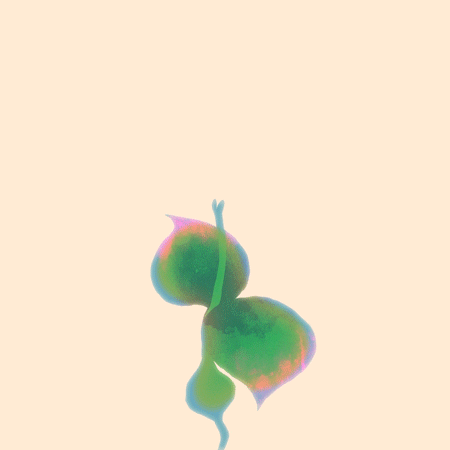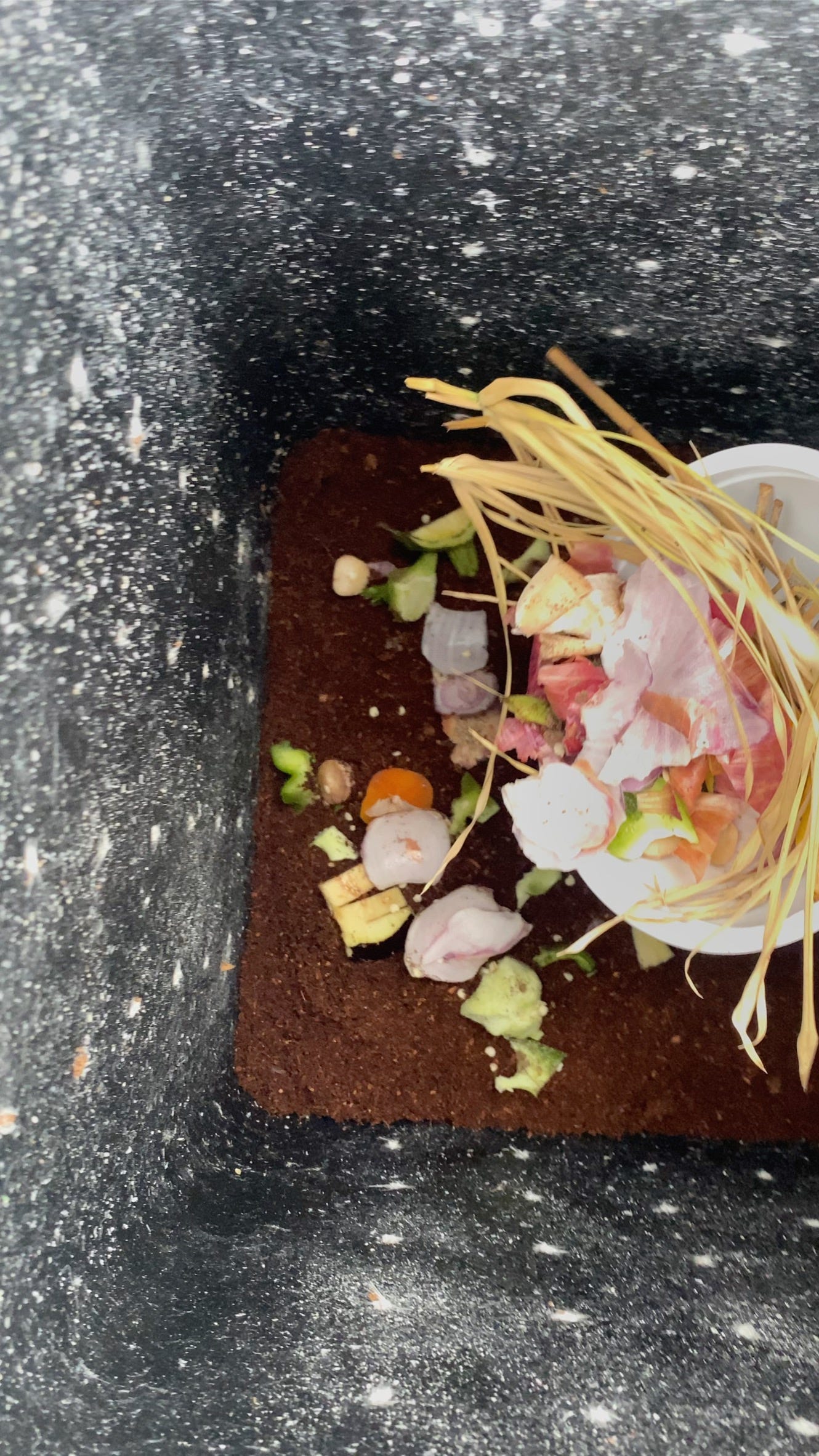There is a worst fear;
That despite every effort
Life is still half-lived.
--

Dear reader,
Today, we begin at the end. To places our food goes to rot. To burden the land, soil, air and water, on and on and on until we have none.
The brinjal curry that we greedily ate but did not finish lies waiting in the yellow Tupperware at the back of the refrigerator, losing its flavour, growing mouldy, and slowly spoiling until it’s dumped.
Half a bunch of droopy coriander leaves, the lone shrivelling beetroot.
The misunderstood curry leaf left on the plate; pasta, so cheesy, another bite sickens; the pizza crust, rubbery with age.
Peels of cucumber and carrot, rinds of watermelon, orange seeds, and spinach roots. Stale biryani, a bitten apple, a half-eaten laddoo.
All this waste, having lived half-lives, heading to the landfills, to burden the land, soil, air and water, on and on and on until we have none.
Or, there is another way. And I arrived at it because of a question I asked myself some eight months ago (when this newsletter was last active).
Born of a not-so-unique existential crisis many of us faced post-pandemic, the question was simply, “Am I doing all that I can, or have I settled for a half-life?”
The question did not pop up overnight. I had been harbouring it but also disregarding it for months. But, asking myself out loud seemed to have made the difference.
It was time to drop a career I had nurtured, honed and fertilised for some 15 years, to set out on a path that I felt would be more fulfilling. It was time to learn more, expand my horizons and step out of my warm, fuzzy comfort zone.
It was time to start looking for ways to do so, accepting rejection and persisting.
In time, I got accepted to manage comms for a non-profit project that focuses on the lives and livelihoods of informal waste pickers in Bengaluru. To do the job well, I had to start paying attention to waste - what we do with it and how we look at it and treat it. To empathise with the waste pickers whose stories I was telling, I had to get closer to their experiences of handling our waste.
After all this, it was no longer enough for me to just know that there is a better way to deal with waste. I had to actually head down that path.
Composting my kitchen waste at home was the easiest place to begin. It takes little effort - all you need is a bin and a few how-to videos on Youtube, and you’re good to go.

(Life) Lessons from a month into composting:
- Make use of everything - To aid composting, you must break down what you throw into the bin - cut watermelon rinds into small pieces, squeeze your lemons dry and so on. In doing so, I’m able to salvage more parts of the things I cut.
- Break down to grow up - a well-managed compost bin breaks down what we think is waste before it nurtures it into soil. This soil nourishes my balcony garden.
- Work hard, but do not hustle - The composter works hard silently to process what I throw in it. But, it’s in no hurry. It will take its time (about 45 days), but do the job well.
Lessons that hold me in good stead now, six months to the date that I left all that I know behind to embark on a path that I am growing proud of — every effort to ensure life isn’t half-lived.
Until next week,
Vishwadha :)
If you’d like to try composting too:
Of half lives & full efforts
Today, we begin at the end. To places our food goes to rot.